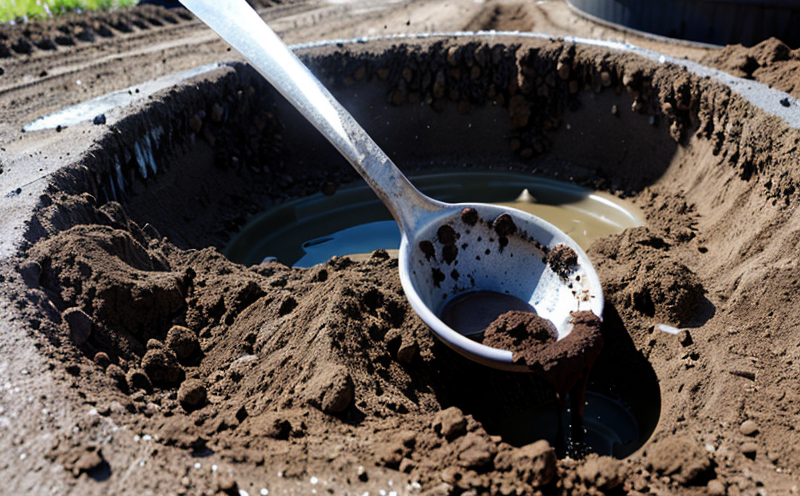ASTM D6975 Biofilm Formation Potential in Sludge Test
The ASTM D6975 biofilm formation potential test is a critical analytical procedure used to evaluate the inherent ability of wastewater sludge and biosolids to form biofilms. This capability can have significant implications on various aspects of water treatment processes, including reactor design, operational efficiency, and environmental impact.
During this process, laboratory experts simulate conditions that are conducive for biofilm formation in a controlled environment. By measuring the rate and extent of biofilm growth under specific parameters, stakeholders gain valuable insights into the quality and potential behavior of their sludge or biosolids. This information is crucial for optimizing treatment processes, ensuring regulatory compliance, and enhancing overall water resource management.
The ASTM D6975 test focuses on key indicators such as the initial biofilm formation rate, maximum biomass accumulation, and stability over time. These metrics help in understanding how effectively the sludge or biosolids will function within a wastewater treatment system. The results can guide decisions related to digestion, dewatering methods, and nutrient retention strategies.
The test typically involves incubating samples under controlled conditions that mimic real-world scenarios found in wastewater treatment plants. Parameters such as temperature, pH levels, dissolved oxygen concentration, and organic loading rate are carefully monitored throughout the process. This ensures accurate representation of biofilm formation dynamics within a relevant context.
For those responsible for managing water and wastewater resources, understanding biofilm formation potential is essential for effective resource management and environmental stewardship. The insights gained from this testing contribute to more sustainable practices by providing data on how different types of sludge or biosolids perform in various treatment settings.
In summary, the ASTM D6975 biofilm formation potential test provides critical information about the behavior of wastewater sludge or biosolids when exposed to conditions conducive for biofilm development. This knowledge supports informed decision-making regarding treatment processes and helps ensure compliance with relevant environmental regulations.
Benefits
The ASTM D6975 biofilm formation potential test offers numerous benefits across multiple stakeholder groups involved in water and wastewater management:
- Enhanced Treatment Efficiency: Understanding the biofilm formation potential allows for better optimization of treatment processes, leading to improved efficiency and performance.
- Regulatory Compliance: By providing accurate data on biofilm formation, this test supports compliance with local, national, and international environmental standards.
- Sustainable Resource Management: Insights from the test can inform strategies for more sustainable use of water resources by optimizing treatment methods.
- Informed Decision-Making: The detailed information provided helps stakeholders make well-informed decisions regarding sludge management, dewatering techniques, and nutrient retention practices.
Overall, the ASTM D6975 test plays a pivotal role in ensuring that water treatment processes are both effective and environmentally responsible. It supports continuous improvement in wastewater management practices while contributing to overall sustainability goals.
Customer Impact and Satisfaction
The implementation of the ASTM D6975 biofilm formation potential test has a direct positive impact on customer satisfaction by addressing several key areas:
- Improved Quality Assurance: By providing reliable data on biofilm formation, this test enhances confidence in product quality and process reliability.
- Enhanced Operational Efficiency: Optimized treatment processes lead to reduced operational costs and improved resource utilization, which ultimately increases customer satisfaction.
- Compliance Assurance: Ensuring adherence to regulatory requirements through accurate testing builds trust between customers and service providers.
- Sustainable Practices: Supporting more sustainable water management practices contributes positively towards long-term customer relationships based on shared environmental values.
Through these benefits, the ASTM D6975 test not only meets current regulatory demands but also paves the way for future advancements in wastewater treatment technology. As a result, customers experience enhanced service quality and peace of mind knowing that their operations are aligned with best practices.
Competitive Advantage and Market Impact
The ASTM D6975 biofilm formation potential test provides significant competitive advantages by offering comprehensive insights into the performance characteristics of wastewater sludge or biosolids. These benefits translate directly to improved market standing for organizations investing in this service:
- Advanced Decision-Making Capabilities: Early access to detailed data enables proactive adjustments to treatment protocols, giving a competitive edge over peers.
- Enhanced Reputation: Demonstrating commitment to cutting-edge testing methods enhances an organization’s reputation among clients and partners.
- Premium Service Offerings: Incorporation of specialized tests like ASTM D6975 into service portfolios appeals to discerning customers seeking premium solutions.
- Faster Market Adaptation: Leveraging robust data facilitates quicker adaptation to changing market conditions, ensuring sustained competitiveness.
In summary, the ASTM D6975 biofilm formation potential test is not just a technical service; it represents an investment in future success. By integrating this capability into their offerings, organizations can differentiate themselves from competitors and build lasting relationships with satisfied customers.





